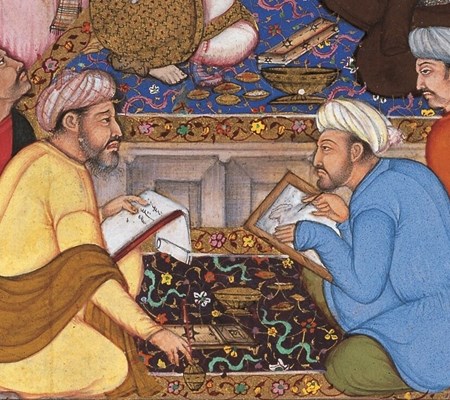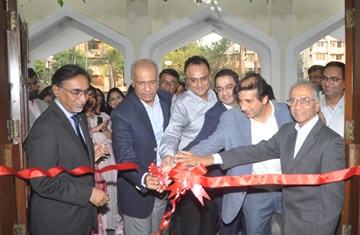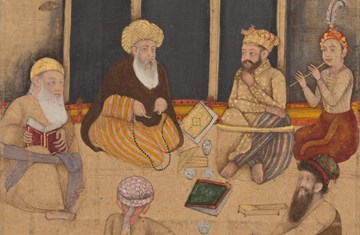Leading Muslim Thinker Ebrahim Moosa to give Keynote Address at IIS Short Course on Shari‘a

Professor Ebrahim Moosa, a leading exponent of contemporary Muslim thought, will be giving the keynote address for the 2021 IIS Short Course on “Shari‘a: Development of Fiqh and Ethics in Muslim Contexts”, which will run online between April 12th and 30th.
One of the 500 most influential Muslims in the world, according to The Muslim 500, he is a Professor of Islamic Thought and Muslim Societies at the University of Notre Dame in the Department of History and the Kroc Institute of International Studies. Professor Moosa was previously a Professor of Religion at Duke University in North Carolina, and was also a Visiting Professor at Stanford University, California, in 1998-2001.
A respected author, Professor Moosa’s book Ghazali and the Poetics of Imagination won the American Academy of Religion’s Best First Book in the History of Religions Award in 2006. He has also written extensively on the thought of Muslim modernist Fazlur Rahman and co-authored the book Islam in the Modern World with Jeffrey Kenney in 2013.
The IIS Short Course on shari‘a, now in its third consecutive year, will run online this year owing to the Covid-19 pandemic, but will continue to be led by well-known specialists in their respective fields. These include:
- UN Special Rapporteur on Human Rights, Professor Mashood Baderin of the School Of Oriental and African Studies (SOAS);
- Well-known Islamic feminist Dr Ziba Mir-Hosseini, founding member of the Musawah global women’s movement and lecturer at Cambridge and Columbia Universities;
- Dr Iqbal Asaria, a leading practitioner of Islamic finance with a focus on Sustainable Development Goals;
- Dr Hadi Enayat, lecturer at Aga Khan University, Institute for the Study of Muslim Civilisations, focusing on constitutional development in the Muslim world.
The course will take a multi-disciplinary approach to the understanding of shari‘a, providing multiple perspectives through the work of outstanding Muslim scholars who have spearheaded new thinking on issues of contemporary relevance to Muslim communities. It will demonstrate that, contrary to popular belief, shari‘a was never a frozen phenomenon but has within it mechanisms to address new issues through the principles of darura (necessity) and maslaha (public interest), which Muslim societies utilised historically through the process of ijtihad (independent reasoning and exertion of the mind).
The Shia understanding of shari‘a and its interpretation through the Imams from the progeny of the Prophet Muhammad, the Hal al-bayt, will be fully explained in this course in the context of Islam’s juridical history. Contemporary issues will be covered through a presentation by a recipient of a vital organ who championed the cause of organ donation for 23 years, finally succeeding in getting a fatwa passed to show that organ donation is not prohibited in Muslim jurisprudence.
The course is directed by Dr Mohamed Keshavjee, co-author of the book Understanding Shari‘a: Islamic Law in a Globalised World, reviewed in the Financial Times. The course is aimed at professional members of the Jamat and those who work in academia, government, civil society, and Jamati and AKDN institutions. It will be spaced over a 20-day period with lectures held every alternate day, thus giving participants enough time to absorb the lectures and to catch up with relevant readings as they get more fully into the course.






